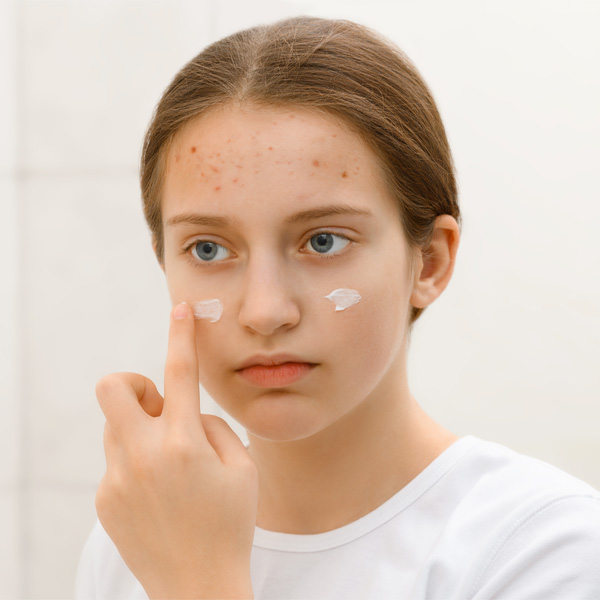Medical Dermatology

Acne
Acne is a common skin disease that begins at adolescence, and for many can continue into adulthood. Because it is associated with changes in hormonal levels, it can affect adults, particularly women, who have no previous history of the disease. It typically affects skin where there is the densest population of sebaceous hair follicles, which explains it occurring mostly on the face, upper chest and the back.
Successful acne treatment varies from individual to individual, therefore we offer a several different acne treatments and procedures and our Acne Treatment Center staff works one-on-one with patients to customize a program best suited for their individual needs. We provide a complete team approach to treating acne that includes a skin care pharmacy and boutique where we offer exclusive, custom-formulated products. Our medical aestheticians are unique in Miami, having trained specifically to work with acne patients and completed a 6-8 month internship working alongside the dermatologist before seeing patients. During your treatment, they will track your progress, review your medications and provide Clinical Facials and/or Chemical Peels designed to improve your skin as quickly as possible. They serve as your advocates if they see the treatment is not performing optimally and will help communicate your needs to the providers.
Barba Skin Clinic dedicates four rooms specifically to the treatment of acne patients and we also offer emergency pimple injections on a walk-in basis for patients that need to get clear for an important event.

What acne treatments are available?
Photodynamic Therapy (PDT) with Levulan® or Alumera
Acne Injections (Emergency Pimple Injections)
Acne Laser Treatments
Dermatitis
Dermatitis is an inflammation of the skin that can result from direct contact with certain substances, such as soap, cosmetics, jewelry, or weeds, including poison ivy or poison oak. Symptoms of contact dermatitis can include red, itchy rash, dry patches resembling burns, pain or tenderness, and in some severe cases, blisters and draining fluid. Contact dermatitis isn't contagious or life-threatening, but it can be very uncomfortable.
To successfully treat dermatitis, Dr. Alicia Barba and her team follow these steps:

Seborrhea (Dandruff)

Eczema
Hair Loss for Women

Psoriasis
Rosacea

Skin Cancer Services
Skin Cancer Screening
Melanoma & Skin Cancer Treatments
Cysts & Lymphoma
Wart Removal
